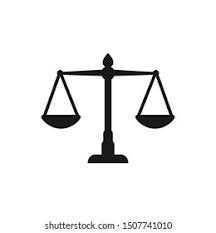RULAAC commends NA for it’s commitment to comply with human rights obligations
To address military checkpoints, human rights abuses in Southeast region

Stanley Ihedigbo
Rule of Law and Accountability Advocacy Center (RULAAC), has commended Nigerian Army (NA) for repeatedly expressed its commitment to complying with the human rights obligations underpinning their operations.
Speaking at a human rights seminar organised by the Nigerian Army with theme: ‘Human Rights and National Security: A strategic balance’, Executive Director, RULAAC, Com. Okechukwu Nwanguma, said that the programme was a testament to the growing human rights consciousness within the military.
“The military has also, on many occasions, expressed its commitment to defend democracy and never to allow anti democratic forces to take us back to the dark era of military dictatorship,” he added.
He further said that organizing the seminar on human rights was an acknowledgement by the organisers that there are gaps in human rights and due process observance in counter insurgency and other military operations across the country.
“Addressing the gaps is essential for restoring public trust, building partnership and ensuring the legitimacy of military actions which are essential for effectiveness in realising the operational objectives of the army including restoring public safety and security, and guaranteeing public order which are essential for democratic growth and national development.
‘Some highlights on paper titled “The Nexus Between Military Operations and Human Rights: An Objective Assessment” are, central to international humanitarian law, the distinction between combatants and civilians is essential. Military operations must prioritize the safety and well-being of non-combatants to minimize civilian casualties and displacement. The need to avoid disproportionate harm to civilians is critical. Military actions should align with the goal of safeguarding civilian lives and livelihoods, thereby preventing further strain on social resources.
“The various violations tied to military operations, including discrimination, torture, and gender-based violence. Addressing these issues, especially in vulnerable populations such as women and children, is vital in maintaining human rights standards. Mainstreaming gender considerations in military operations can effectively prevent gender-based violations and enhance the overall human rights framework within military conduct,” he stressed.
According to the human rights activist, clear limitations on human rights in military operations must be established to prevent abuse and impunity.
“A commitment to international conventions and accountability for violations by all parties is imperative for fostering trust and legitimacy. The repercussions of military reprisals can lead to collective punishment, resentment, and a cycle of violence. It is critical for military operations to avoid these practices to preserve community relations and prevent further conflict.
“Failure to investigate allegations of human rights violations contributes to an atmosphere of impunity. Transparency and accountability are essential to ensure justice for victims and restore faith in military operations. Concerns regarding military checkpoints in the southeast and associated human rights abuses must be addressed. A multidimensional approach, including community engagement and addressing socio-economic issues, is necessary to mitigate insecurity effectively.
“Concerns about the militarization of the southeast, particularly military checkpoints and reports of harassment, can not be overlooked. The military’s role in internal security must be limited to special circumstances, preserving its integrity and mission. The relationship between military personnel and police must also be addressed to prevent hostility and promote accountability,” he emphasized.
He advised for recognition of the military’s establishment of human rights desks and engagement with civil society organizations reflects a growing awareness of the importance of human rights in military operations.
“To enhance the effectiveness of military operations, it is necessary to ensure adequate training, resources, and welfare for frontline personnel, helping to stabilize troop morale and prevent premature retirements. Limiting military involvement in internal security operations can preserve the military’s reputation. Enhancing the capabilities and morale of the Nigeria Police Force should be prioritized, ensuring they fulfill their primary role in maintaining internal security.
“Continuation of seminars and discussions around human rights will further embed these values within military operations, fostering public support and enhancing civil-military relations. Continued advocacy, transparency, and engagement with civil society are essential to ensure that military operations uphold human rights standards and contribute positively to national security.
“There is often a tension between national security interests and the protection of human rights and the rule of law. National security measures can sometimes involve limiting or suspending certain human rights or acting outside the bounds of the rule of law, which can lead to disputes among stakeholders and raise questions about the legitimacy of those measures.
“While national security is undoubtedly important, it is crucial that measures taken to protect it respect human rights and the rule of law. The United Nations, for instance, recognizes that “human rights, the rule of law and democracy are interrelated and mutually reinforcing and that they belong to the universal and indivisible core values and principles of the United Nations.” Upholding these values is essential for building a society that is both safe and just.
“Therefore, it is important to find a balance between national security and human rights and the rule of law, and to ensure that national security measures are proportionate, necessary, and in line with international standards for human rights. Open and constructive dialogue between governments, civil society, legal experts, and other stakeholders is necessary to uphold national security while also preserving human rights and the rule of law,” he stated.
FENRAD urges dialogue on 15% petroleum import duty amid economic woes
Foundation for Environmental Rights, Advocacy and Development (FENRAD) has expressed deep …










